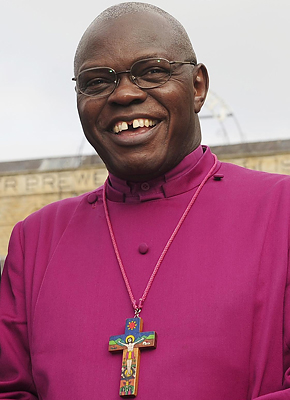Archbishop of Canterbury Rowan Williams speaks during the Lord Mayor of the City of London's Banquet on Nov. 14, 2011
The position of Archbishop of Canterbury, which Rowan Williams has held for nearly a decade now, has increasingly required as much diplomacy as it has spiritual leadership — if not more so. Back in 2007, Williams told TIME that his position as the spiritual leader of the Church of England, and the 77 million-strong global Anglican Communion, was an opportunity to “try and maintain as long as possible the space in which people can have constructive disagreements, learn from each other, and try and hold that within an agreed framework of discipline and practice.”
Certainly, maintaining such a space has been an enormous task, so the announcement, made Friday, that Williams will be resigning at the end of the year to take a position as master of Magdalene College at Cambridge, wasn’t exactly a shock. For 61-year-old Williams, steadily navigating the widening rift between liberal ideals and conservative values within the church for most of his tenure has not only prevented an all-out fracture within the church but has also been “a major nuisance.”
One of the hallmark dilemmas of Williams’ time has been the battle over acceptance of homosexual bishops. While Williams and an increasing number of liberal Christians living in Western countries have leaned toward a more inclusive practice of faith, many conservative critics have resisted any shift in the church’s traditions.
While balancing these diverging beliefs within one overarching faith would be challenging for any cleric, for Williams the task has surely been immense. As TIME’s David Van Biema and Catherine Mayer noted in their profile of Williams, the “sharp debate over homosexuality threatens [Anglican] unity.” And while Williams has often referred to his commitment to find that fine balance between opposing views — which aren’t limited to homosexuality but have also included accepting women bishops, the handling of Occupy London protesters and various areas of social justice — he’s also repeatedly faced criticism from many directions for failing to take a hard line one way or another.
Williams, who describes himself on his website as “first and foremost a priest and Christian teacher in the Diocese of Canterbury and the country as a whole,” will begin work at Cambridge in January. He’s set to carry out his duties as Archbishop until the end of the year.

PA / Landov
While there are a few contenders to replace Williams, the favorite is widely thought to be the Archbishop of York, John Sentamu, a Uganda-born Briton. The decision will be made by a group of senior clerics who then pass their nomination on to Prime Minister David Cameron. Queen Elizabeth II, who is the Supreme Governor of the Church of England, would then formally appoint the position.
While Sentamu is an obvious contender and his appointment would mark the first time a black cleric was appointed to the position — not an insignificant triumph — he could hardly be more different from Williams. With Sentamu’s staunchly conservative outlook (he’s repeatedly voiced his objections to homosexuality and has taken up a controversial side project as a columnist for Rupert Murdoch’s latest venture, The Sun on Sunday), a new era of division within the Anglican Church would be a near certainty.

